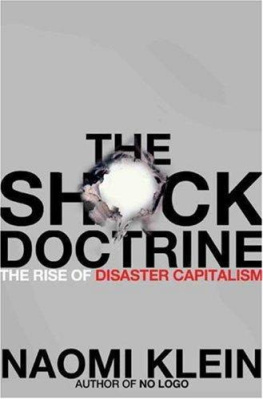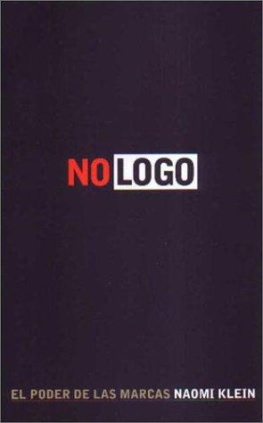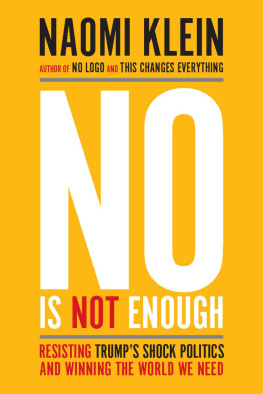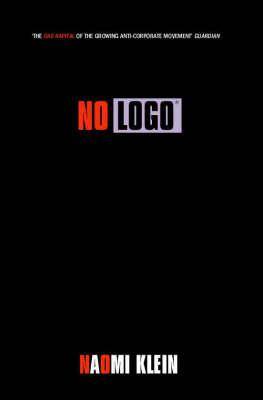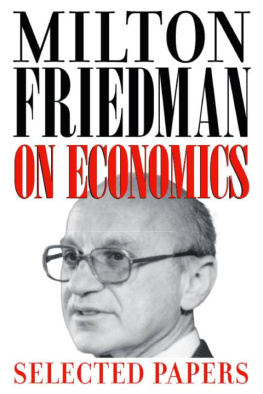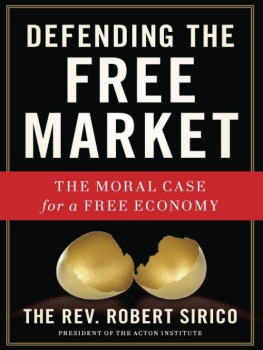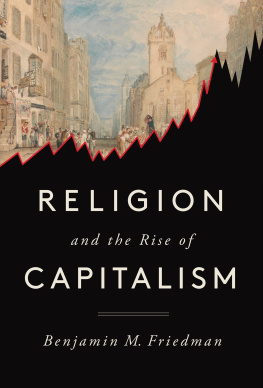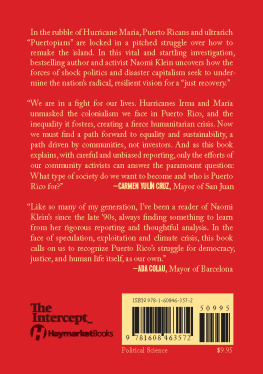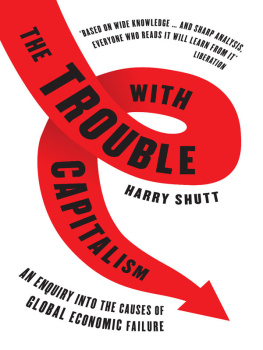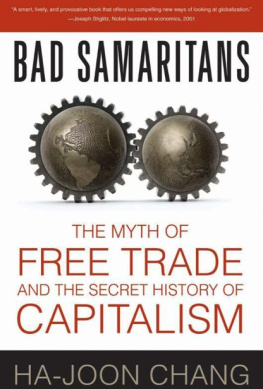THE
SHOCK
DOCTRINE
THE RISE OF DISASTER CAPITALISM
NAOMI KLEIN
. Cesar Aira, Argentine novelist, Cumpleanos, 2001
CONTENTS
INTRODUCTION
Blank Is Beautiful: Three Decades of Erasing and Remaking the World 3
PART 1
Two Doctor Shocks: Research and Development
1. The Torture Lab: Ewen Cameron, the CIA and the Maniacal Quest to Erase and Remake the Human Mind 25
2. The Other Doctor Shock: Milton Friedman and the Search for a Laissez-Faire Laboratory 49
PART 2
The First Test: Birth Pangs
3. States of Shock: The Bloody Birth of the Counterrevolution 75
4. Cleaning the Slate: Terror Does Its Work 98
5. "Entirely Unrelated": How an Ideology Was Cleansed of Its Crimes 116
PART 3
Surviving Democracy: Bombs Made of Laws
6. Saved by a War: Thatcherism and Its Useful Enemies 131
7. The New Doctor Shock: Economic Warfare Replaces Dictatorship 142
8. Crisis Works: The Packaging of Shock Therapy 155
PART 4
Lost in Transition: While We Wept, While We Trembled, While We Danced
9. Slamming the Door on History: A Crisis in Poland, a Massacre in China 171
10. Democracy Born in Chains: South Africa's Constricted Freedom 194
11. Bonfire of a Young Democracy: Russia Chooses "The Pinochet Option" 218
12. The Capitalist Id: Russia and the New Era of the Boor Market 246
13. Let It Burn: The Looting of Asia and "The Fall of a Second Berlin Wall" 263
PART 5
Shocking Times: The Rise of the Disaster Capitalism Complex
14. Shock Therapy in the U.S.A.: The Homeland Security Bubble 283
15. A Corporatist State: Removing the Revolving Door, Putting in an Archway 308
PART 6
Iraq, Full Circle: Overshock
16. Erasing Iraq: In Search of a "Model" for the Middle East 325
17. Ideological Blowback: A Very Capitalist Disaster 341
18. Full Circle: From Blank Slate to Scorched Earth 360
PART 7
The Movable Green Zone: Buffer Zones and Blast Walls
19. Blanking the Beach: "The Second Tsunami" 385
Z0. Disaster Apartheid: A World of Green Zones and Red Zones 406 21. Losing the Peace Incentive: Israel as Warning 423
CONCLUSION
Shock Wears Off: The Rise of People's Reconstruction Notes 467
Acknowledgments S27 Index S3S
THE SHOCK DOCTRINE
INTRODUCTION
BLANK IS BEAUTIFUL
THREE DECADES OF ERASING AND REMAKING THE WORLD
Now the earth was corrupt in God's sight, and the earth was filled with violence. And God saw that the earth was corrupt; for all flesh had corrupted its ways upon the earth. And God said to Noah, "I have determined to make an end of all flesh, for the earth is filled with violence because of them; now I am going to destroy them along with the earth." -Genesis 6:11 (NRSV)
Shock and Awe are actions that create fears, dangers, and destruction that are incomprehensible to the people at large, specific elements/sectors of the threat society, or the leadership. Nature in the form of tornadoes, hurricanes, earthquakes, floods, uncontrolled fires, famine, and disease can engender Shock and Awe.
Shock and Awe: Achieving Rapid Dominance, the military doctrine for the U.S. war on Iraq
Born and raised in New Orleans, he'd been out of the flooded city for a week. He looked about seventeen but told me he was twenty-three. He and his family had waited forever for the evacuation buses; when they didn't arrive, they had walked out in the baking sun. Finally they ended up here, a sprawling convention center, normally home to pharmaceutical trade shows and "Capital City Carnage: The Ultimate in Steel Cage Fighting," now jammed with two thousand cots and a mess of angry, exhausted people being patrolled by edgy National Guard soldiers just back from Iraq.
The news racing around the shelter that day was that Richard Baker, a prominent Republican congressman from this city, had told a group of lobbyists, "We finally cleaned up public housing in New Orleans. We couldn't do it, but God did." Joseph Canizaro, one of New Orleans' wealthiest developers, had just expressed a similar sentiment: "I think we have a clean sheet to start again. And with that clean sheet we have some very big opportunities." All that week the Louisiana State Legislature in Baton Rouge had been crawling with corporate lobbyists helping to lock in those big opportunities: lower taxes, fewer regulations, cheaper workers and a "smaller, safer city"which in practice meant plans to level the public housing projects and replace them with condos. Hearing all the talk of "fresh starts" and "clean sheets," you could almost forget the toxic stew of rubble, chemical outflows and human remains just a few miles down the highway.
Over at the shelter, Jamar could think of nothing else. "I really don't see it as cleaning up the city. What I see is that a lot of people got killed uptown. People who shouldn't have died."
He was speaking quietly, but an older man in line in front of us overheard and whipped around. "What is wrong with these people in Baton Rouge? This isn't an opportunity. It's a goddamned tragedy. Are they blind?"
A mother with two kids chimed in. "No, they're not blind, they're evil. They see just fine."
One of those who saw opportunity in the floodwaters of New Orleans was Milton Friedman, grand guru of the movement for unfettered capitalism and the man credited with writing the rulebook for the contemporary, hy-permobile global economy. Ninety-three years old and in failing health, "Uncle Miltie," as he was known to his followers, nonetheless found the strength to write an op-ed for The Wall Street Journal three months after the levees broke. "Most New Orleans schools are in ruins," Friedman observed, "as are the homes of the children who have attended them. The children are now scattered all over the country. This is a tragedy. It is also an opportunity to radically reform the educational system."
Friedman's radical idea was that instead of spending a portion of the billions of dollars in reconstruction money on rebuilding and improving New Orleans' existing public school system, the government should provide families with vouchers, which they could spend at private institutions, many run at a profit, that would be subsidized by the state. It was crucial, Friedman wrote, that this fundamental change not be a stopgap but rather "a permanent reform."
A network of right-wing think tanks seized on Friedman's proposal and descended on the city after the storm. The administration of George W. Bush backed up their plans with tens of millions of dollars to convert New Orleans schools into "charter schools," publicly funded institutions run by private entities according to their own rules. Charter schools are deeply polarizing in the United States, and nowhere more than in New Orleans, where they are seen by many African-American parents as a way of reversing the gains of the civil rights movement, which guaranteed all children the same standard of education. For Milton Friedman, however, the entire concept of a state-run school system reeked of socialism. In his view, the state's sole functions were "to protect our freedom both from the enemies outside our gates and from our fellow-citizens: to preserve law and order, to enforce private contracts, to foster competitive markets." In other words, to supply the police and the soldiers anything else, including providing free education, was an unfair interference in the market.
In sharp contrast to the glacial pace with which the levees were repaired and the electricity grid was brought back online, the auctioning off of New Orleans' school system took place with military speed and precision. Within nineteen months, with most of the city's poor residents still in exile, New Orleans' public school system had been almost completely replaced by privately run charter schools. Before Hurricane Katrina, the school board had run 123 public schools; now it ran just 4. Before that storm, there had been 7 charter schools in the city; now there were 31. New Orleans teachers used to be represented by a strong union; now the union's contract had been shredded, and its forty-seven hundred members had all been fired. Some of the younger teachers were rehired by the charters, at reduced salaries; most were not.
Next page
